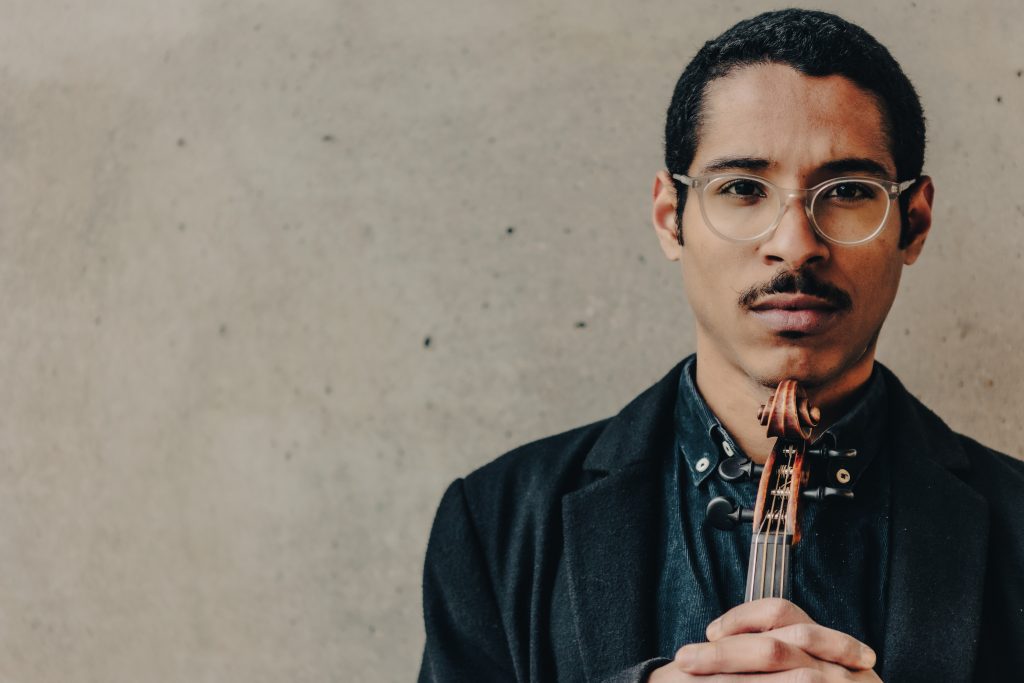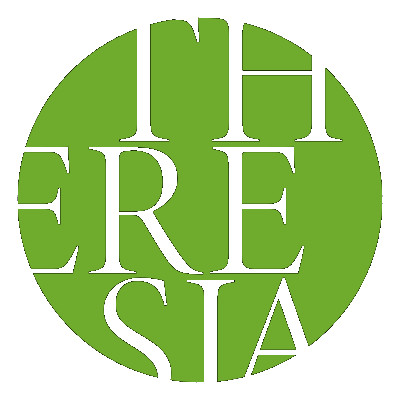
Lucas Bernardo da Silva is a new member of Theresia: he joined our orchestra after Theresia’s auditions in Paris and had his first experience in February, when the orchestra was conducted by Giovanni Antonini in an all-Beethoven program. Let’s get to know him better!
Lucas, how did you start playing the violin?
Everything started in the church where I used to go with my parents: there was an orchestra playing during the services, and I was totally fascinated by that: I always wanted to sit as close as possible to the violins as I was so into it! It was so evident that there was a rising passion in me that my mother gave me a violin as a present on one of my birthdays when I was a child; anyway, I started a proper musical education at around nine years old and violin at eleven, at the church; about a year later I enrolled in the Music State School of San Paulo where I had my complete training until 2014 when I moved to the Netherlands for my bachelor. After that, I took a Master in Den Haag, and here I am.
When did you decide to make music your profession, your job?
It’s always a difficult question to answer because when a passion grows within you, the decision to follow that path is not an isolated event, but a natural process. Anyway, I think the triggering moment was when I was 15 years old and had the opportunity to participate in a music festival where I played a lot in orchestra and chamber music groups: there I met great musicians and had this fulfilling experience that made me realize this was just what I wanted to do.
Are there other musicians in your family?
I have a sister who studied music but did not pursue further professional training. And none of my relatives is a professional musician, but they have always been supportive, since I was a child.
When and why did you start to play the period instrument?
I actually concentrated on modern violin until the end of my studies: when I moved from Brazil to the Netherlands, I started to have a lot of friends studying period instruments or play in ensembles devoted to historically informed performance. This is how I initially got into it: I went to their concerts or their lessons, and inevitably I was surrounded by it. And inevitably, I listened to a lot of professional ensembles and orchestras, as in the Netherlands there’s such a strong tradition in HIP. So by the end of my bachelor, I had started reading, listening, studying, and taking lessons to know more about it. I got more and more into HIP, and I realized that the music, the sound, the way of playing the instrument, everything started to make much more sense!
Do you still play the modern violin?
Yes, I do, especially in orchestras, as I’m a freelance musician. But I try to use the period instrument as much as I can, not only when playing baroque and classical repertoire, but also when playing romantic pieces.
You joined Theresia recently: how did you know about the orchestra, and why did you decide to take part in the auditions?
Before hearing about the auditions, I already knew Theresia from some colleagues who also studied here in Den Hague and with whom I played chamber music. After my graduation, I’ve been trying to do more and more with the period instrument, and when I learnt about the auditions, I thought that this was what I was looking for and that it was a great opportunity.
Had you already played in an orchestra like Theresia?
I have played in orchestras and ensembles that use period instruments and focus on HIP, but always playing earlier repertoire: I love the focus that Theresia has on classical repertoire.
Your first experience with Theresia was the recent production with Giovanni Antonini as a conductor. What did you like most about working with him?
It was really interesting: I obviously already knew Giovanni Antonini by reputation, but I had never worked with him. I was very happy with this experience because Giovanni Antonini is an inspiring and remarkable musician. He is full of energy, full of great ideas, and he got a great sound out of the orchestra.
What about the repertoire? Did you know that it was the first time that Theresia played Beethoven?
Yes, I was told, but if I didn’t know I wouldn’t have said! Knowing that, I was even happier to be there, to share this moment: playing Beethoven is great, his music is a development of the language, a huge pushing forward of many ideas.
What did you like more about the soloist, Dmitry Smirnov?
I was very impressed by him, he’s an inspiring musician. And when I say I was impressed, I’m not simply talking about his technique, but especially how daring he was about going for his ideas, in a non-apologetic way. This kind of approach, daring and risking, fits playing Beethoven, and he really managed to capture this. Especially when he played his cadenzas during the rehearsal, and then during the concert, it was unpredictable and made me think “oh, where is he going with that?” and it was always surprising.
How did you feel being part of the orchestra, and did you enjoy your little tour in Italy?
I already knew some people, a lot of them coming from Den Haag: some of them were familiar faces that I had the chance to know better; the rest of the people were super nice. And I obviously enjoyed being in Italy, especially in Ravenna we had some spare time and it was great. I had the time to visit churches and admire the mosaics, I was very impressed with how beautiful they were.
You moved from Brazil to the Netherlands: what do you miss about your country and what do you appreciate about living in Europe and in particular in the Netherlands?
That’s a hard one! I really miss the weather, the climate in my country is great. Also, I love the city I come from, São Paulo, and I miss my family and my friends. But I really like being in The Netherlands. When I decided to move here, it was because I knew I would have better opportunities for studying and playing classical music. Then, I love the possibility of moving around easily in Europe and enjoying how diverse cultures are in Europe. That’s very enriching. Finally, The Netherlands is a very international place, where I can meet people from all places, and this fits perfectly with my way of seeing things, and music too. For me, as a musician, it is a good place to live because a lot is going on.
Where do you see yourself in ten years?
Well, I love playing in an orchestra, it is the thing I enjoy most, so I definitely hope I will be doing that. I do not think it will matter for me to have a fixed position or not, and where, I do not really mind. But at some point having a closer connection with Brazil would be great. I hope I can teach there a bit, and share my experience back in my country.


